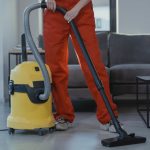
The world’s loudest snore ever recorded was measured at more than a hundred decibels
If you have a power lawn mower at home which produces 107 decibels, enough to make your neighbors hate you, then you probably have an idea just how loud a hundred-decibel snore is.
However, being a snorer is not something to be proud of given the fact that it is a sign of a sleep disorder. Not to mention the fact that it can also increase one’s risk for type 2 diabetes, stroke, high blood pressure, and heart disease. So, what do you do if you are among these snorers? It is sad to note that there hasn’t been a cure or treatment that helps a person to permanently stop snoring.
The good news is that there are many effective ways to help you reduce or stop it. Some of these are the following:
1. Use An Anti-snore Pillow
For people who normally snore at night, it is not enough that they use an ordinary pillow like what non-snorers use. The pillow experts from https://poofingthepillows.com/pillow/best-pillows-for-snoring/ state that the goal of having a pillow is to ensure that your head will always be kept in neutral alignment throughout the night while you’re sleeping. Your head should not be bent back too far or reaching too far forward. Once your head is in proper alignment while sleeping, chances are high that your snoring becomes alleviated.
This mouthpiece to stop snoring technique is also one of the most comfortable and easiest ways to stop snoring. A mouthpiece can help gently move the lower jaw forward, opening up your airway and preventing snoring. The mouthpiece is custom-made to fit your mouth, ensuring maximum comfort while wearing it.
2. Observe SOS
SOS or Sleeping On Your Side is one good way to prevent your tongue from moving to the back of your throat to reduce the likelihood of air flow blockage. If you sleep on your side, there will be better airflow because your airways are not compressed to thus reduce if not eliminating your tendency to snore.
3. Make Use of Nasal Dilators
Nasal dilators are also known to work effectively in reducing one’s likelihood to snore. These dilators pull the nostrils and the sides of the nose so they will have a wider opening for a better breathing ability while sleeping. Nasal dilators usually come in a stiffened adhesive strip. You just have to apply this on top or across your nostrils.
4. Avoid Alcoholic Beverages
Alcohol has both sedative and depressant effects that relax the jaw and the muscles of the throat. And, once these throat muscles relax, they collapse onto your airways, thereby restricting the amount of air that can flow and this leads to snoring. It is best to avoid alcohol consumption at least three hours before bedtime.
5. Ditch Those Cigarettes
Smoking is known to irritate the tender lining of the throat, which also results in inflammation and narrowing of the air passages. These adverse effects are not only experienced by smokers themselves, but the same thing may also occur to nonsmokers who are regularly exposed to secondhand smoke. Besides, do not forget that snoring per se increases your risk for many diseases and if you do not cut back or eliminate the habit of smoking, you could be doubling your risk for illnesses.
6. Lose Excess Weight
If you are the kind of person who does not snore way back when you were still thin or have a normal weight, then consider losing those excess pounds. Although it is a fact that many thin people also snore, there are also those whose snoring is triggered by their excess weight. Having those fatty tissues and lacking muscle tone can both increase your tendency to snore. Even when you are not too fat, but already carry excess weight around your neck and throat these would be enough to contribute to snoring.
7. Observe Proper Sleep Hygiene
Stop the habit of hitting the sack only when you feel too exhausted to work. Otherwise, you will only find yourself snoring as hard as you worked for long hours. When you are overtired, you also sleep deep and hard thereby making your muscles floppier. Proper sleep hygiene may be different for everyone. This may include avoiding stimulants such as coffee, tea, and other caffeinated beverages. Others may need to take a hot bath before hitting the bed.
If you think your habit of snoring does not bother you at all, then think about your partner. He or she may have trouble sleeping at night just because you snore loudly. Snoring is a serious health issue as it implies that there is something wrong with the way you breathe while sleeping. So, better consult your neuromuscular dentist and be checked for the possibility of having sleep apnea. Then do not forget the tips mentioned in this article.










